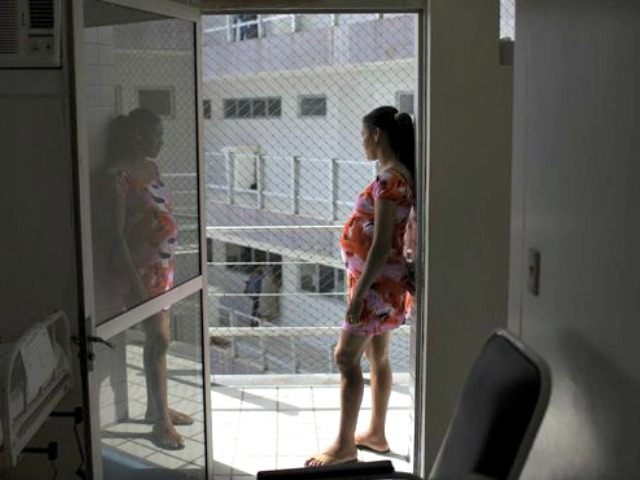Doctors have found the Zika virus in placentas of two U.S. women who contracted the virus. They suffered miscarriages after they returned to the states.
STAT reported three women suffered miscarriages, but the CDC confirmed Zika in two placentas. The scientists said the miscarriages occurred in the early stages of the pregnancy but did not provide further details.
Experts are still working to understand the Zika side effects in pregnancies. Brazil, El Salvador, and Colombia have advised women against getting pregnant.
“It’s a very personal decision, but at this moment of uncertainty, if families can put off their pregnancy plans, that’s what we’re recommending,” stated Angela Rocha, the pediatric infectologist at Oswaldo Cruz Hospital in Brazil.
Other doctors have discovered Zika in the tissue of infants who died from microcephaly, a rare birth defect that occurs when the brain does not form properly during the pregnancy or after birth. It results in a small head for the child.
“This is the strongest evidence to date that Zika is the cause of microcephaly,” explained CDC Director Tom Frieden. “Zika is new, and new diseases can be scary, particularly when they can affect the most vulnerable among us.”
Frieden stopped short of claiming Zika caused the microcephaly. He said scientists need to perform more tests to confirm an actual link.
The CDC stated the disorder is typically uncommon. Following the Zika outbreak, however, Brazil has documented over 4,000 cases and is diagnosing an average of 200 cases a week. In 2015, the country tracked over 2,400 cases, compared to the 147 in 2014.
Doctors reported 404 cases of microcephaly in newborns since November. They tied seventeen “to the Zika virus.” Fifteen of the 404 passed away, “with five linked to Zika.” Authorities are investigating 56 other deaths and 3,670 cases.
Yale University School of Public Health Professor Albert Ko claims the cases of microcephaly in Brazil are just the start of concerns about birth defects linked to the Zika virus.
“It seems like microcephaly may just be the tip of the iceberg,” he stressed, adding:
The preliminary evidence is that [some] babies who don’t have microcephaly may also have neurological lesions or birth defects that are not as obvious as microcephaly. We’re really concerned because of Zika, but we need to rule out other causes of congenital infection to really make sure.
Microcephaly has received the most attention, but Ko found other problems with the infants.
“We’re seeing a spectrum. Many have fairly severe central nervous system lesions,” he explained. “There are also a lot of calcium deposits … Those can cause seizures and cause impairment in terms of function for the brain.”
He added, “We’re also seeing that in some babies, the brains, which usually have wrinkles, are actually smooth. That’s a sign that development of the brain has been impaired. Several of them are also impaired with respect to vision and hearing.”

COMMENTS
Please let us know if you're having issues with commenting.